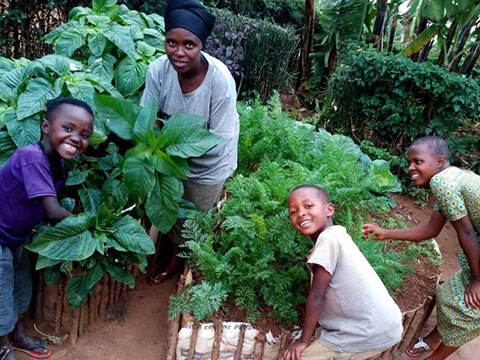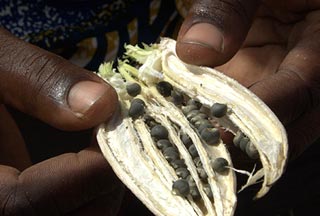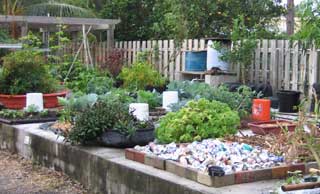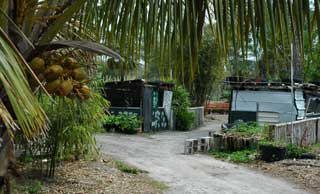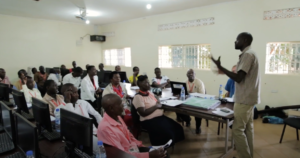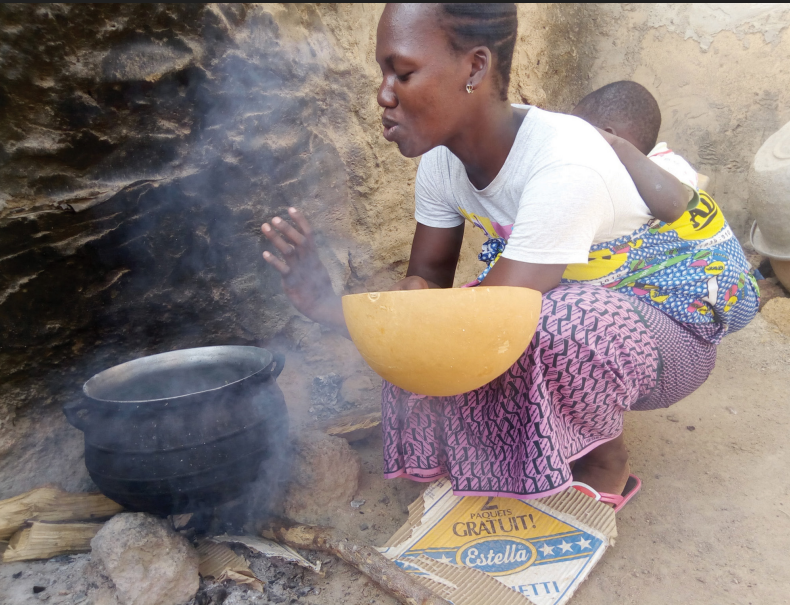At ECHO we strive to help others solve hunger-related issues through research, training, and the application of appropriate technology. Today we share the story of ECHO trainers who have impacted innovation efforts by using appropriate technology, such as rocket stoves and biogas digesters, to help improve the lives of small scale farmers across Africa.
Burundi
“A technology that is never used has an efficiency of zero.”
Craig Bielema’s quiet but confident voice echoed in my headphones as he explained his recent project modifying a rocket stove concept to help his team feed 500 kids every school day. A past ECHO Intern, Craig had also spent many years on staff at ECHO Florida, leading the Appropriate Technology department. Now, Craig and his family serve in Burundi with Mennonite Central Committee. The kitchen staff at the school have been using open fires in a small enclosed kitchen, which becomes very smoky, causing health problems for the women that cook each day. This method of cooking also consumes a large amount of wood, which is in short supply. Craig is helping them to pilot a large-scale, fuel efficient stove with a chimney to remove smoke from the kitchen, making a much healthier environment for the cooks and also to ease the burden of collecting and/or buying firewood. “In this project we sacrificed some efficiency for increased usability,” Craig explained. “In later versions of the stove, we sacrificed slightly more efficiency for reproducibility and longevity. The goal is that the technology is an improvement to the current situation, and it is used. If it is not both of those things, it is failing.”
Tanzania
 In another part of Africa, Herry Charles, an ECHO trainer, is testing multiple rocket stove sizes made of mud-bricks to help share practical, hands- on experience with the farmers he teaches in Tanzania. Just like in Burundi, the bigger size accommodates larger pots and feeds groups of people, from schools to large family gatherings. Made of mud-brick and reinforced with metal, these stoves are affordable and use less fuel, and create much less smoke than the traditional 3-stone fire.
In another part of Africa, Herry Charles, an ECHO trainer, is testing multiple rocket stove sizes made of mud-bricks to help share practical, hands- on experience with the farmers he teaches in Tanzania. Just like in Burundi, the bigger size accommodates larger pots and feeds groups of people, from schools to large family gatherings. Made of mud-brick and reinforced with metal, these stoves are affordable and use less fuel, and create much less smoke than the traditional 3-stone fire.
Burkina Faso
 ECHO first taught about biogas in West Africa in 2010. Biogas is created by the metabolism of methane bacteria, and is comprised of methane, carbon dioxide, and less than 1% hydrogen sulfide. Simply put, biogas is the output of the natural process of turning organic residues such as manure or kitchen waste into energy and fertilizer.
ECHO first taught about biogas in West Africa in 2010. Biogas is created by the metabolism of methane bacteria, and is comprised of methane, carbon dioxide, and less than 1% hydrogen sulfide. Simply put, biogas is the output of the natural process of turning organic residues such as manure or kitchen waste into energy and fertilizer.
Now, farmers are asking for guidance on how to make the digester larger. “We train people and they start using the biogas plant with the drum,” shared Promesse Kansie, an ECHO West Africa trainer. “The biogas digester provides many benefits — reduced smoke, cooking fuel, and garden fertilizer. It is so amazing. The main request from our trainees is to know whether we can build a larger plant to produce more gas. Ten or twelve family members can be eating together at one time.”
Sharing Knowledge Across the Continent
The beauty of ECHO’s network is that larger biogas plants are currently being tested and researched in Tanzania — and ECHO trainers are testing and sharing this knowledge.
As Craig demonstrated in Burundi, usability, reproducibility, and longevity are key features in technology innovations — at ECHO and globally. As we share knowledge resources and learn from those we serve, we are fueling innovation for small-scale farmers across Africa and around the world.
ECHO provides Hope Against Hunger through agricultural training, innovative options, and networking with community leaders and missionaries in 190+ countries. ECHO seeks to find agricultural solutions for families growing food under difficult conditions. ECHO’s international headquarters is located in Fort Myers, FL. To learn more, donate, or volunteer, visit www.echonet.org
